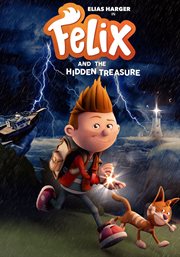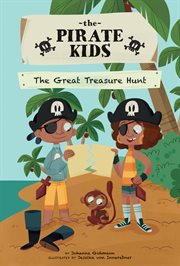Review by Booklist Review
Gr. 3-5. Exquisite drawings by Bulgarian artist Ghiuselev illustrate this new edition of Ruskin's classic fairy tale. Hans lives with his two greedy brothers, who exploit the land and people of Treasure Valley for their own gain. Through his kindness and courage, Hans gains the favor of the magical King of the Golden River. In a series of fine, softly shaded drawings, some warmed with subtle touches of color, Ghiuselev captures the tone as well as the sense of the story. The volume closes with a page devoted to Ruskin. A well-designed and very handsome edition of the timeless tale. --Carolyn Phelan Copyright 2005 Booklist
From Booklist, Copyright (c) American Library Association. Used with permission.
Review by Publisher's Weekly Review
Blake's signature kinetic line and quivering washes of bold color illustrate an 1842 folktale by the influential art critic John Ruskin. Three brothers-two awful, one sweet-live in an Edenic valley that the two oldest exploit for profit. When the South-West Wind, Esquire (an irascible little gentleman with a "mustache curled twice round like a corkscrew") comes calling on a stormy night and kind Gluck, the youngest brother, offers him food and shelter, the act triggers a chain of events that involve environmental catastrophe, a tiny king trapped within a golden cup, and a voyage across a treacherous glacier to find a fortune. That the fortune turns out to be the valley restored, not a literal pile of gold, adds resonance for readers living in the Anthropocene. Ruskin's rich language-"level lines of dewy mist... out of which rose the massy mountains"-is a treat. Ages 7-up. (Apr.) © Copyright PWxyz, LLC. All rights reserved.
(c) Copyright PWxyz, LLC. All rights reserved
Review by Horn Book Review
This literary fairy tale was penned by the Victorian writer at the request of a twelve-year-old girl. A boy named Gluck finds himself richly rewarded for his kind acts while his evil, money-grubbing brothers Schwartz and Hans are turned to stone for their avarice. Precisely detailed miniature paintings in this small edition complement the moralizing but elegantly written tale. From HORN BOOK Spring 2001, (c) Copyright 2010. The Horn Book, Inc., a wholly owned subsidiary of Media Source, Inc. No redistribution permitted.
(c) Copyright The Horn Book, Inc., a wholly owned subsidiary of Media Source, Inc. No redistribution permitted.
Review by Kirkus Book Review
John Ruskin's 19th-century fairy tale, in which a strange dwarf effects the punishment of two cruel older brothers and the ultimate success of the kind young one, is done up in an oversized (10"" by 11"") package with full-page colored pictures, decorative frames, and art nouveau trim. But neither Ruskin's sentence structure nor the sheer number of words on each page suits this to the picturebook age, and Turska's clichÉd interpretations--with the burnished folksiness of little Gluck at home, the elemental terrors of the two brothers' ordeals, the heavenly joy of virtue rewarded--overreact to every cue. Copyright ©Kirkus Reviews, used with permission.
Copyright (c) Kirkus Reviews, used with permission.


